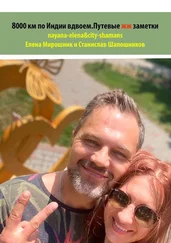“Do you think she regretted it?” Pagan asked suddenly.
“Your mother?” Devin turned from the window, puzzled, until realization eased the line between his brows. “You’re thinking that’s maybe why she committed suicide.”
“Is it strange that’s the answer I’m hoping for?” she said.
“No.” Devin’s voice was gentle. “But whatever else she did doesn’t cancel out the fact that she really did love you. And Ava.”
“Why do people have to be so complicated?” She didn’t expect an answer. “I want to understand why she did it, but if I do figure that out, what good does it do me?”
“You’re the only one who can figure that out,” he said. “Identifying Von Albrecht might not get you the information about your mother that you’re looking for. It might get you her file, and it might not. You could go through all of this and still not have any answers.”
Pagan picked up her fork and knife. “All the stuff with Mama is secondary. If the man you’ve found here is the one who did those experiments on people, he needs to be brought to justice.” She cut a tiny piece off the steak. Slightly pink inside, the way she liked it. “Tell me more about him.”
Devin took a seat, watching her eat. “The man we found here named Rolf Von Albrecht is the right age to be Von Alt, the right height, we think, and he has the right sort of knowledge. He’s a professor of physics at the University of Buenos Aires, not far from here. He also lives nearby. He moved to Buenos Aires in March of 1953, which jibes with him leaving your house in November of 1952.
“He was later joined by his two children, Dieter and Emma, and his wife, Gerte. We know Von Alt had a family back in Germany during the war, but the records of their names and ages were destroyed. So we can’t trace him that way. Gerte died in 1960 of cancer. Dieter goes to a high school right next to where his father teaches and has been accepted into the university. He’s also part of a dangerous gang of teenagers that split off from a larger fascist gang recently. We think he may even be their leader.”
“He sounds delightful,” Pagan said.
“It makes all kinds of sense if he’s the son of a Nazi war criminal,” Devin said. “That’s another reason we think Von Albrecht’s our man. The fight between the gangs seems to have been over how ‘pure’ bloodlines were. Dieter and his friends are children of recent German immigrants, too new to Argentina for the leader of the other gangs.”
“So even the purest Aryan son of a Nazi wasn’t pure enough for this other gang?” Pagan shook her head. “If the fascists are fighting among themselves, they should do us all a favor and kill one another off.”
“Unfortunately, they haven’t forgotten that they hate the Jews more than anyone. The barrio where Dieter’s school is, and where Von Albrecht teaches, has a large Jewish population and a history of anti-Semitic violence. So it’s very lucky for us that you’ll be shooting a scene of your movie on the grounds of that school tomorrow.”
“The big dancing-in-the-courtyard scene?” Pagan had memorized the entire horrible script in spite of its awfulness, as well as the shooting schedule. “How’d you manage that?”
Devin raised his eyebrows in an exaggeratedly innocent way. “Who says I had anything to do with it? To round out the report, Von Albrecht has a daughter, Emma, two years younger than Dieter, sixteen.”
“Von Albrecht’s a professor, so maybe I can wander into one of his classes tomorrow—a lecture,” Pagan said through a mouthful of steak. It was tender and succulent. “As soon as I hear him speak, I should be able to tell you if it’s the man I knew.”
“We thought of that. But he took a sabbatical, a full year, and won’t lecture again until the fall.”
“Why have the movie shoot near his workplace, then?” Pagan asked. “And don’t keep pretending you had nothing to do with that.”
“Dieter and Emma will be there,” Devin said. “And it might be useful to have you near them, perhaps to meet them.”
“Maybe I could join Dieter’s gang,” Pagan said, waving a forkful of steak airily. “I could establish my bona fides by telling them how I foiled the Communist East German army in Berlin.”
“A gang of fascists might elect you their leader if they learned how you humiliated those Communist leaders,” Devin said in the same light tone. “Let’s hope gang membership won’t be necessary. But you do have a connection to their family via your mother. Emma and Dieter likely don’t know about her at all, but Von Albrecht will remember.”
Pagan nodded, chewing. Perhaps she could use Von Albrecht’s sense of obligation to her mother to her advantage somehow. But first she needed a way to meet the man. “The more we know about him, the better, right?” she said. “Even though he’s not there, this is where he works and where his kids go to school. I could potentially learn a lot.”
Devin stood up to pace over to the window, look down onto the tree-lined road and then pace back. “We’ve been following Von Albrecht for the past two months, hoping to find a pattern so we could set you up to run into him. But for the past three weeks he hasn’t left his house at all. Not once. He’s always spent the bulk of his nonworking time at home, but not to poke his head out of his own front door once in three weeks is very odd.”
“Maybe he’s dead.”
“Doubtful. Nothing else has changed. His children come and go in the same pattern—to school, errands, to parties with their friends and so on, with no sign of mourning or visits from mortuary personnel. The daughter, Emma, buys the same amount of food every week. So we’re pretty sure he’s still alive. No doctor visits, so he’s probably not ill, at least not seriously.”
“Personnel,” Pagan said. “Never heard you use that word before. Sounds...military.”
“I’m officially a lieutenant in Her Majesty’s Navy.” He pronounced it leftenant. “Unofficially, the men who face real combat wouldn’t consider me very military.”
“So how do I get to see and hear this guy if he’s locked up in his house?” she asked. “I’m way too messy to be convincing as his new maid.”
“I told you that you wouldn’t need to pretend to be anyone but yourself. I’ve got an idea.” He stopped pacing. She detected a challenge in his stormy gaze. “You’re a movie star of German descent, after all. And a lonely girl in a strange city.”
Pagan, who didn’t feel the least bit lonely, met his eyes with a small, pleased smile. “So empty inside and in need of rescue. How well you know me.”
CHAPTER EIGHT
San Telmo, Buenos Aires
Evening of January 10, 1962
CONFITERIA BAILABLE
A café-like establishment where one can purchase refreshments and dance tango.
The tires rumbled over cobblestones. Dim light from streetlamps flashed through the dark interior of the car, over the back of Carlos’s head, flashing bronze on Mercedes’s dress as she stared out the car window.
Pagan was headed out to a bar. She, an alcoholic. The things she did for Devin and for her country...well, they were dangerous in all kinds of ways and she enjoyed them. That probably meant something was wrong with her, but that fault could get in line behind all the others.
She glanced over at Mercedes, calm and glowing in that knee-length burnished dress, her thick, curly black hair teased at the crown. The winged black eyeliner Pagan had drawn on gave her dark brown eyes a newly mysterious look.
“Cobblestones on the streets, and the buildings are shorter here,” Pagan said, watching the two-story edifices fly past, their window boxes overflowing with flowers, closed up for the night.
Читать дальше












